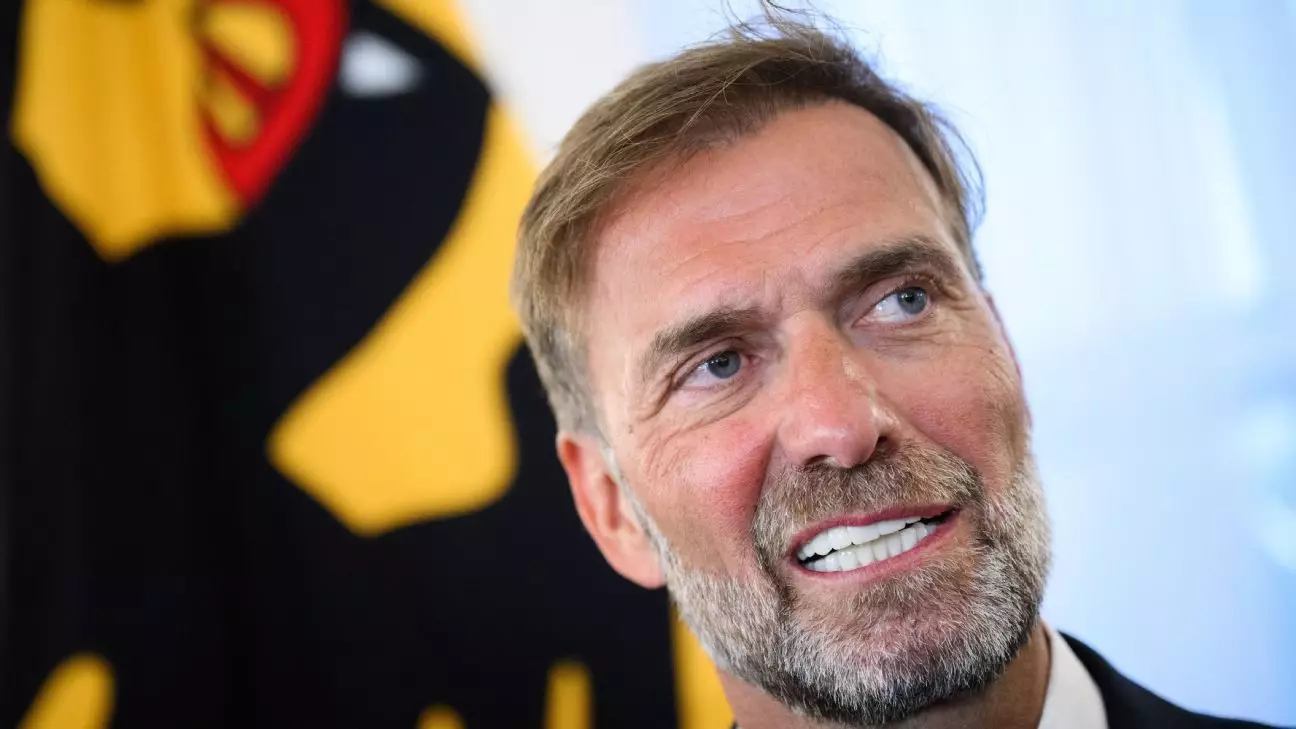Jürgen Klopp’s appointment as head of global football at Red Bull has stirred a mix of excitement and scorn within the footballing community. As Klopp takes on this new role starting January, having departed from Liverpool after a fruitful tenure, his decision has invited substantial backlash, especially from fans of his former clubs in Germany. This unexpected career shift invites scrutiny into the motivations behind it and the implications for his legacy.
In recent discussions, particularly during an interview with Toni Kroos, Klopp emphasized his longstanding affection for his previous clubs, stating he never intended to undermine their legacy. The emotional connection he shares with clubs like Mainz and Borussia Dortmund, where he spent over a decade building his reputation, is significant. However, this dedication is now juxtaposed with his new venture into a corporate environment many fans despise, creating a deep-seated conflict among supporters.
The brewing resentment is notably palpable among the Dortmund faithful, who have openly criticized his decision. They see him aligning with RB Leipzig—a team that symbolizes corporate interference in football. The banners raised by Mainz supporters, questioning Klopp’s judgment, indicate the depth of their discontent. For an individual like Klopp, who cultivated an identity steeped in loyalty and grassroots football, this stark transition raises eyebrows.
The venture with Red Bull comes at a time when German football faces an ideological battle against corporate entities. Many supporters resent the apparent commodification of a sport steeped in rich history and tradition. Klopp’s acknowledgment of the critical views surrounding Red Bull’s influence suggests an awareness of the potential ramifications of his choice. Yet, he argues that Red Bull’s investment has rejuvenated football in the east of Germany—an assertion that directly contrasts with the fan bases that feel marginalized by such developments.
For many, the essence of football is rooted in community and tradition, and Red Bull’s modus operandi threatens to dilute this. Klopp’s viewpoint might resonate with those who appreciate the influx of resources that has helped elevate previously underperforming regions to competitiveness. Still, the sentiment among fans leans heavily toward retaining focus on the sport’s integrity rather than aligning it with commercial ventures.
Klopp has often struck a balance between professional ambition and personal values. His admission that he had not anticipated the backlash reflects a genuine approach to his career choices. He remarked, “I really don’t know what exactly I could have done for everyone to be happy.” This speaks volumes about the inherent conflict between doing what is professionally beneficial versus being beholden to fan sentiment—an expectation many in his position may find hard to navigate.
The role at Red Bull positions Klopp not just as a figurehead but also as an adviser, a task he perceives as a stepping stone into another facet of the football industry. This highlights Klopp’s evolution from player-coach to a broader role within football that encompasses strategic input across multiple clubs. However, his candidness around feeling that a football coach is often isolated illustrates his understanding of the industry’s mental rigors.
As he embarks on this new chapter, Klopp’s future is not merely about scorelines or trophies. It revolves around redefining his influence within the sport while addressing the expectations of a diverse landscape of supporters. While he advocates for his role in shaping football strategies, the public’s perception may take time to align with his vision.
Ultimately, Klopp’s journey reflects the intricate dynamics at play in modern football, where personal decisions are often scrutinized under the lens of loyalty versus progression. For a man of his stature, navigating these waters while hoping to maintain his authenticity will be a considerable challenge. One can only hope that amidst this corporate framework, Klopp remains anchored to the core values he has championed throughout his career.

